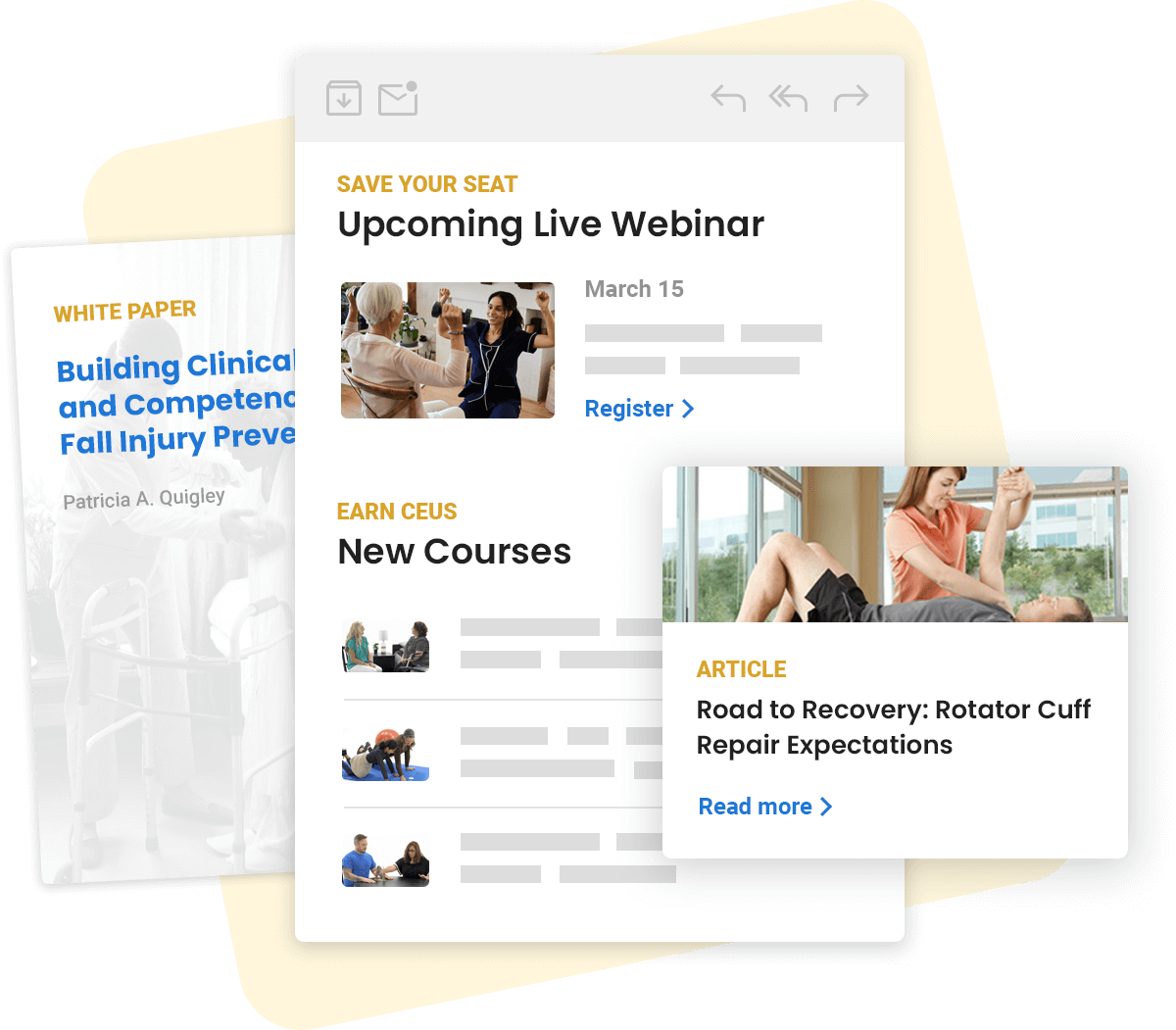Orthopedic Rehabilitation: It Takes an Expert

Once considered a challenging population requiring highly specialized care, patients with orthopedic rehabilitation needs are more frequently being transferred to skilled nursing over the past few years. Due to changes in Medicare reimbursement, patients with joint replacements, open-reduction and internal fixation (ORIF) of fractured hips, and traumatic fractures now receive rehabilitation nursing and therapy care in the skilled nursing setting.
Unfortunately, as a healthcare community, we sometimes forget that orthopedics is a true specialty, not just a cast or splint over a bone or “the hip in 2A.”
Understanding Orthopedics
Orthopedics isn’t just about bones. It is also about nerves, blood vessels, compartment syndrome, hemorrhage, infection, failed surgeries, and pain. Orthopedics is about impaired mobility, the need for housing changes and caregivers, problems with activities of daily living, and a high potential for falls or contractures.
Orthopedics is about the young man who can no longer drive because his hip was permanently fixed in extension. It’s about the older adult who needs a change in housing because he will no longer be able to climb the twelve steps into his high-raised coastal house. It’s about specialized nursing assessments and plans of care to recognize or prevent complications.
Orthopedics is a specialty, and orthopedic nurses are specialists. The National Association of Orthopaedic Nurses (NAON) has developed a core curriculum, a specialty board certification, clinical practice guidelines, and a specialty journal. They develop and sponsor educational materials and research, and exist to improve the care that orthopedic patients receive.
Another certification that acknowledges the orthopedic specialty is the Certification for Rehabilitation Nurses (CRRN®). Nurses with this certification also have advanced knowledge and skill in the care of the orthopedic rehabilitation patient.
Know When to Consult and Refer
We in the non-orthopedic world should acknowledge that orthopedics is a specialty and employ or consult specially certified nurses. We should ask for their expert advice and access their specialized training for our patients. We should work in collaboration with the orthopedic units who refer patients to us and learn from them—and we should also strive to sponsor our nurses to become orthopedic-certified through NAON or rehabilitation-certified through the RNCB in order to ensure that our staff care responsibly and competently for the orthopedic patient.
Developing Specialty Expertise
Interested in learning more about orthopedic and rehabilitation specialization? Visit the NAON website to learn about their various certifications and requirements. To learn more about CRRN® certification, visit the Association of Rehabilitation Nurses website. And don’t forget—MedBridge subscribers have access to the CRRN® Prep Program, a self-guided comprehensive collection of courses, case studies, readings, practice tests, and simulated exams to help you pass the test, gain expertise, and advance your career!
You can also learn more about rehabilitation care for the person with an orthopedic condition in the MedBridge course, “An In-Depth Look at Orthopedics for Rehabilitation Nurses.”










